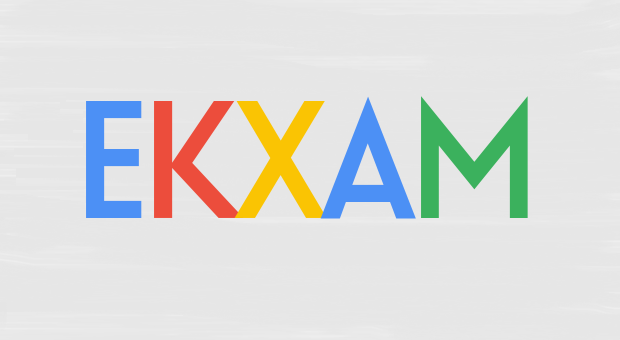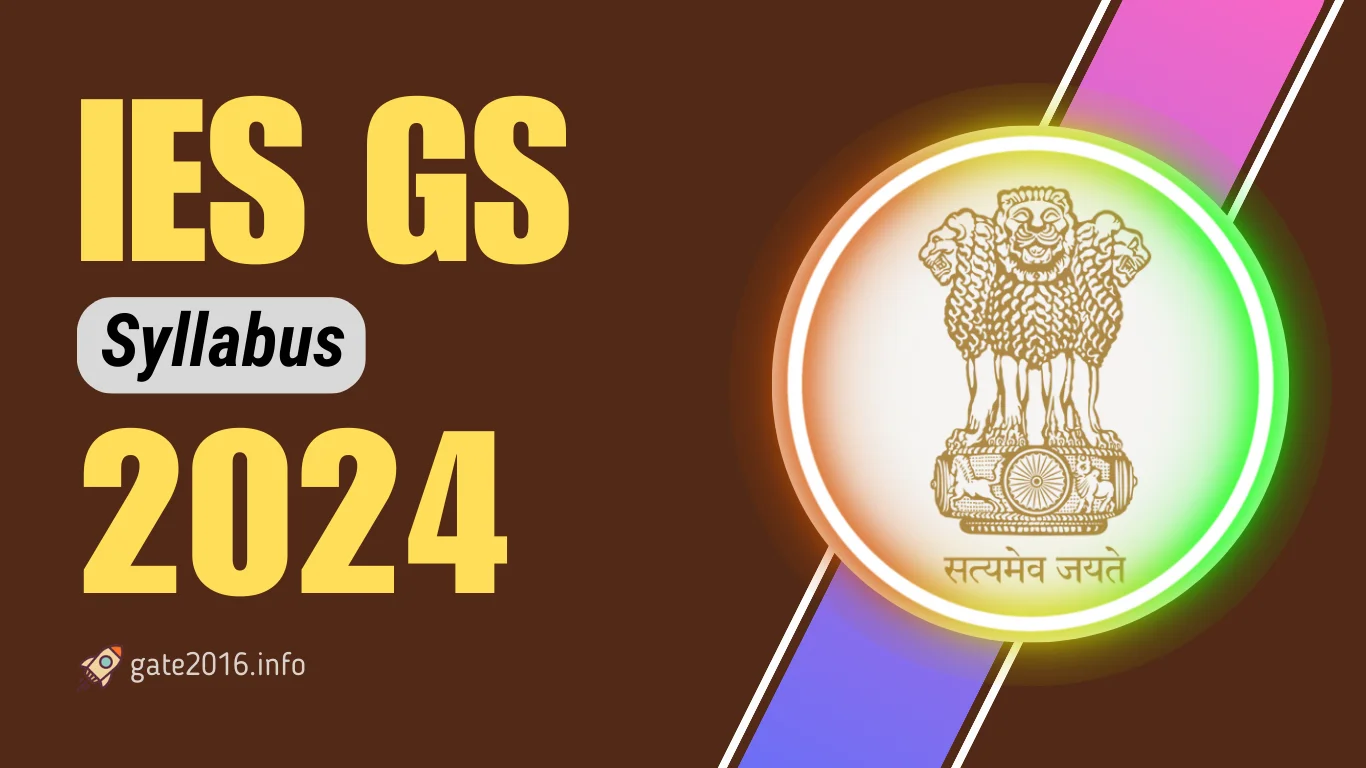Advertisements
Ratings
IES / ESE
ELECTRONICS AND COMMUNICATION ENGINEERING
[2024-2025]
IES ECE Syllabus 2024 – Here we have provided IES 2024 syllabus for Electronics & Telecommunication Engineering & paper pattern (Prelims & Mains) in free pdf format.
This Electronics & Telecommunication Engineering syllabus & paper pattern will guide the candidates in their IES 2024 examination preparation.
Electronics & Telecommunication Engineering aspirants can download their UPSC ESE 2024 Electrical Engineering syllabus from the table given below.
Contents
- IES 2024 Highlights
- Electronics & Telecommunication Engineering aspirants can download their UPSC ESE 2024 Electronics & Telecommunication Engineering syllabus from the table given below.
- IES Electronics & Telecommunication Engineering Paper Pattern 2024
- IES Electronics & Telecommunication Engineering Syllabus 2024
- IES Electronics & Telecommunication Engineering Detailed Syllabus 2024
- IES Mechanical Engineering Guidance
- IES Syllabus & Paper Pattern ECE FAQs
- IES Total Information & Guidance
IES 2024 Highlights
| IES 2024 Conducting Body | UPSC (IES 2024) |
| IES 2024 Total Subjects | 4 (CE, ME, EE, EC) |
| IES 2024 Total Vacancy | 167 |
| IES 2024 (Prelims) Exam Date | 18.02.2024 (Sunday) |
| IES 2024 (Mains) Exam Date | 23.06.2024 (Sunday) |
| IES 2024 Selection | Preliminary, Mains and Interview |
| IES 2024 Preliminary exam | Objective Type |
| IES 2024 Mains exam | Conventional Type |
| IES 2024 Exam Mode | Offline |
Electronics & Telecommunication Engineering aspirants can download their UPSC ESE 2024 Electronics & Telecommunication Engineering syllabus from the table given below.
IES Electronics & Telecommunication Engineering Paper Pattern 2024
| Stages | Examination | Marks |
|---|---|---|
| Stage-I | Preliminary | 500 |
| Stage-II | Mains | 600 |
| Stage-III | Personality Test | 200 |
| Stage-I + Stage-II + Stage-III | Grand Total | 1300 |
Preliminary/Stage-I Examination (Objective Type Papers)
| Paper | Name of Paper | Time Duration | Maximum Marks |
|---|---|---|---|
| Paper-I | General Studies and Engineering Aptitude Paper | 2 Hours | 200 |
| Paper-II | Engineering Discipline-specific Paper | 3 Hours | 300 |
| Paper-I + Paper-II | Grand Total | 5 Hours | 500 |
Mains/Stage-II Examination (Subjective Type Papers)
| Paper | Name of Paper | Time Duration | Maximum Marks |
|---|---|---|---|
| Paper-I | Engineering Discipline-specific Paper-I | 3 Hours | 300 |
| Paper-II | Engineering Discipline-specific Paper-II | 3 Hours | 300 |
| Paper-I + Paper-II | Grand Total | 6 Hours | 600 |
IES Electronics & Telecommunication Engineering Syllabus 2024
| General Ability Syllabus (Common to all papers) [pdf] | Download |
| IES Syllabus for Electronics & Telecommunication Engineering [pdf] | Download |
IES Electronics & Telecommunication Engineering Detailed Syllabus 2024
Contents for syllabi of both the Papers together for Preliminary Examination/ Stage-I (objective type Paper-II) and separately for Main/ Stage-II Examination (Conventional type Paper-I and Paper-II).
IES Syllabus for Electronics & Telecommunication Engineering Paper 1
| Topics | IES Electronics and Telecommunication Engineering Syllabus |
| Basic Electronics Engineering | Basics of semiconductors; Diode/Transistor basics and characteristics; Diodes for different uses; Junction & Field Effect Transistors (BJTs, JFETs, MOSFETs); Transistor amplifiers of different types, oscillators, and other circuits; Basics of Integrated Circuits (ICs); Bipolar, MOS and CMOS ICs; Basics of linear ICs, operational amplifiers and their applications linear/non-linear; Optical sources/detectors; Basics of Optoelectronics and its applications. |
| Basic Electrical Engineering | DC circuits ohm’s & Kirchoff’s laws, mesh and nodal analysis, circuit theorems; Electromagnetism, Faraday’s & Lenz’s laws, induced EMF and its uses; Single-phase AC circuits; Transformers, efficiency; Basics-DC machines, induction machines, and synchronous machines; Electrical power sources- basics: hydroelectric, thermal, nuclear, wind, solar; Basics of batteries and their uses. |
| Materials Science | Electrical Engineering materials; Crystal structure & defects; Ceramic materials-structures, composites, processing and uses; Insulating laminates for electronics, structures, properties and uses; Magnetic materials, basics, classification, ferrites, Ferro/para-magnetic materials and components; Nano materials-basics, preparation, purification, sintering, nanoparticles and uses; Nano-optical/magnetic/electronic materials and uses; Superconductivity, uses. |
| Electronic Measurements and Instrumentation | Principles of measurement, accuracy, precision, and standards; Analog and Digital systems for measurement, measuring instruments for different applications; Static/dynamic characteristics of measurement systems, errors, statistical analysis and curve fitting; Measurement systems for non-electrical quantities; Basics of telemetry; Different types of transducers and displays; Data acquisition system basics. |
| Network Theory | Network graphs & matrices; Wye-Delta transformation; Linear constant coefficient differential equations- time-domain analysis of RLC circuits; 26 Solution of network equations using Laplace transforms- frequency domain analysis of RLC circuits; 2-port network parameters-driving point & transfer functions; State equations for networks; Steady state sinusoidal analysis. |
| Analog and Digital Circuits | Small signal equivalent circuits of diodes, BJTS, and FETs; Diode circuits for different uses; Biasing & stability of BJT & JFET amplifier circuits; Analysis/design of amplifier single/multi-stage; Feedback& uses; Active filters, timers, multipliers, waveshaping, A/D-D/A converters; Boolean Algebra& uses; Logic gates, Digital IC families, Combinatorial/sequential circuits; Basics of multiplexers, counters/registers/ memories /microprocessors, design& applications. |
IES Syllabus for Electronics & Telecommunication Engineering Paper 2
| Topics | IES Electronics and Telecommunication Engineering Syllabus |
| Analog and Digital Communication Systems | Random signals, noise, probability theory, information theory; Analog versus digital communication & applications: Systems- AM, FM, transmitters/receivers, theory/practice/ standards, SNR comparison; Digital communication basics: Sampling, quantizing, coding, PCM, DPCM, multiplexing-audio/video; Digital modulation: ASK, FSK, PSK; Multiple access: TDMA, FDMA, CDMA; Optical communication: fibre optics, theory, practice/standards. |
| Control Systems | Classification of signals and systems; Application of signal and system theory; System realization; Transforms & their applications; Signal flow graphs, Routh-Hurwitz criteria, root loci, Nyquist/Bode plots; Feedback systems-open & close loop types, stability analysis, steady-state, transient and frequency response analysis; Design of control systems, compensators, elements of lead/lag compensation, PID and industrial controllers. |
| Computer Organization and Architecture | Basic architecture, CPU, I/O organisation, memory organisation, peripheral devices, trends; Hardware /software issues; Data representation & Programming; Operating systems-basics, processes, characteristics, applications; Memory management, virtual memory, file systems, protection & security; Databases, different types, characteristics, and design; Transactions and concurrency control; Elements of programming languages, typical examples. |
| Electro Magnetics | Elements of vector calculus, Maxwell’s equations-basic concepts; Gauss’, Stokes’ theorems; Wave propagation through different media; Transmission Lines-different types, basics, Smith’s chart, impedance matching/transformation, S- parameters, pulse excitation, uses; Waveguides-basics, rectangular types, modes, cut-off frequency, dispersion, dielectric types; Antennas-radiation pattern, monopoles/dipoles, gain, arrays-active/passive, theory, uses. |
| Advanced Electronics Topics | VLSI technology: Processing, lithography, interconnects, packaging, testing; VLSI design: Principles, MUX/ROM/PLA-based design, Moore & Mealy circuit design; Pipeline concepts & functions; Design for testability, examples; DSP: Discrete-time signals/systems, uses; Digital filters: FIR/IIR types, design, speech/audio/radar signal processing uses; Microprocessors & microcontrollers, basics, interrupts, DMA, instruction sets, interfacing; Controllers & uses; Embedded systems. |
| Advanced Communication Topics | Communication Networks: Principles /practices /technologies /uses /OSI model/security; Basic packet multiplexed streams/scheduling; Cellular networks, types, analysis, protocols (TCP/TCPIP) Microwave & satellite communication: Terrestrial/space type LOS systems, block schematics link calculations, system design; Communication satellites, orbits, characteristics, systems, uses; Fibre-optic communication systems, block schematics, link calculations, system design. |
IES Mechanical Engineering Guidance
- How to Prepare for IES Electronics Engineering: A Comprehensive Guide
- IES ECE Syllabus 2024: Prelims and Mains
- IES ECE Subjective Papers – (2023-1980)
- IES ECE Objective Papers – (2023-1997)
- IES ECE Books 2024: Prelims and Mains
IES Syllabus & Paper Pattern ECE FAQs
What is the IES ECE syllabus?
The IES ECE syllabus includes topics related to analog and digital electronics, communication systems, control systems, electromagnetic theory, and signal and systems.
How many papers are there in the IES ECE exam?
There are two papers in the IES ECE exam - Paper 1 and Paper 2.
What is the duration of each paper in the IES ECE exam?
Each paper in the IES ECE exam is of 3 hours duration.
What is the paper pattern of Paper 1 in the IES ECE exam?
Paper 1 in the IES ECE exam is a subjective type paper with questions related to electronic devices and circuits, analog and digital communication, and control systems.
What is the paper pattern of Paper 2 in the IES ECE exam?
Paper 2 in the IES ECE exam is a subjective type paper with questions related to electromagnetic field theory, microwave engineering, and signal processing.
How many questions are there in each paper of the IES ECE exam?
Each paper in the IES ECE exam has 6 questions of 20 marks each.
Are there any negative marks in the IES ECE exam?
Yes, there is negative marking in the IES ECE exam. 1/3rd of the marks will be deducted for each wrong answer.
What is the total marks for the IES ECE exam?
The total marks for the IES ECE exam is 600.
Is there any interview round in the IES ECE exam?
Yes, there is an interview round in the IES ECE exam. It is conducted for 200 marks.
What is the weightage of the interview round in the IES ECE exam?
The weightage of the interview round in the IES ECE exam is 200 marks.
Recent Posts
- IES 2024 Expected Cut-off Marks: Prelims and Mains
- How to Prepare for IES Electrical Engineering: A Comprehensive Guide
- How to Prepare for IES Electronics Engineering: A Comprehensive Guide
- IES 2024 Vacancy – Branch-wise and Category-wise Distribution
Related Tags
ies syllabus for ece pdf 2024, ies syllabus for ece 2024 pdf download 2024, Ies syllabus & paper pattern ece pdf download 2024, Ies syllabus & paper pattern ece pdf 2024, Ies syllabus & paper pattern ece 2024 2024, ies syllabus pdf 2024, ies prelims exam pattern 2024, ies ece syllabus 2024 2024
| IES/ESE GS & EA Books |
| IES/ESE Guide Books |
IES Total Information & Guidance
Click below given links to get further information.




Thanks for your help sir.
Hello amit,
Thanks for appreciating our work.
Feel free to ask if you need any help in future & join us @ Google+ / Facebook for getting regular updates.
Hello sir,
I belongs to CSE department I want do IES. I want your suggestion on which branch can help me to crack IES. Please give suggestions for my preparation also.
Hello Anand,
As you said you belong to CSE and want to prepare for IES examination.
As per our analysis you should prepare for IES examination in Electronics & Telecommunication Engineering stream. It is closely related to Computer Science and Engineering (CSE), If we talk about B. Tech. syllabus of both of these streams.
IES Complete Information & Guidance :
Click Here : http://www.gate2016.info/ies-information-guidance/
Feel free to ask if you need any help in future & join us @ Google+ / Facebook for getting regular updates.
Helpful.
Hello Naveen,
Thanks for appreciating our work.
Feel free to ask if you need any help in future & join us @ Google+ / Facebook for getting regular updates.